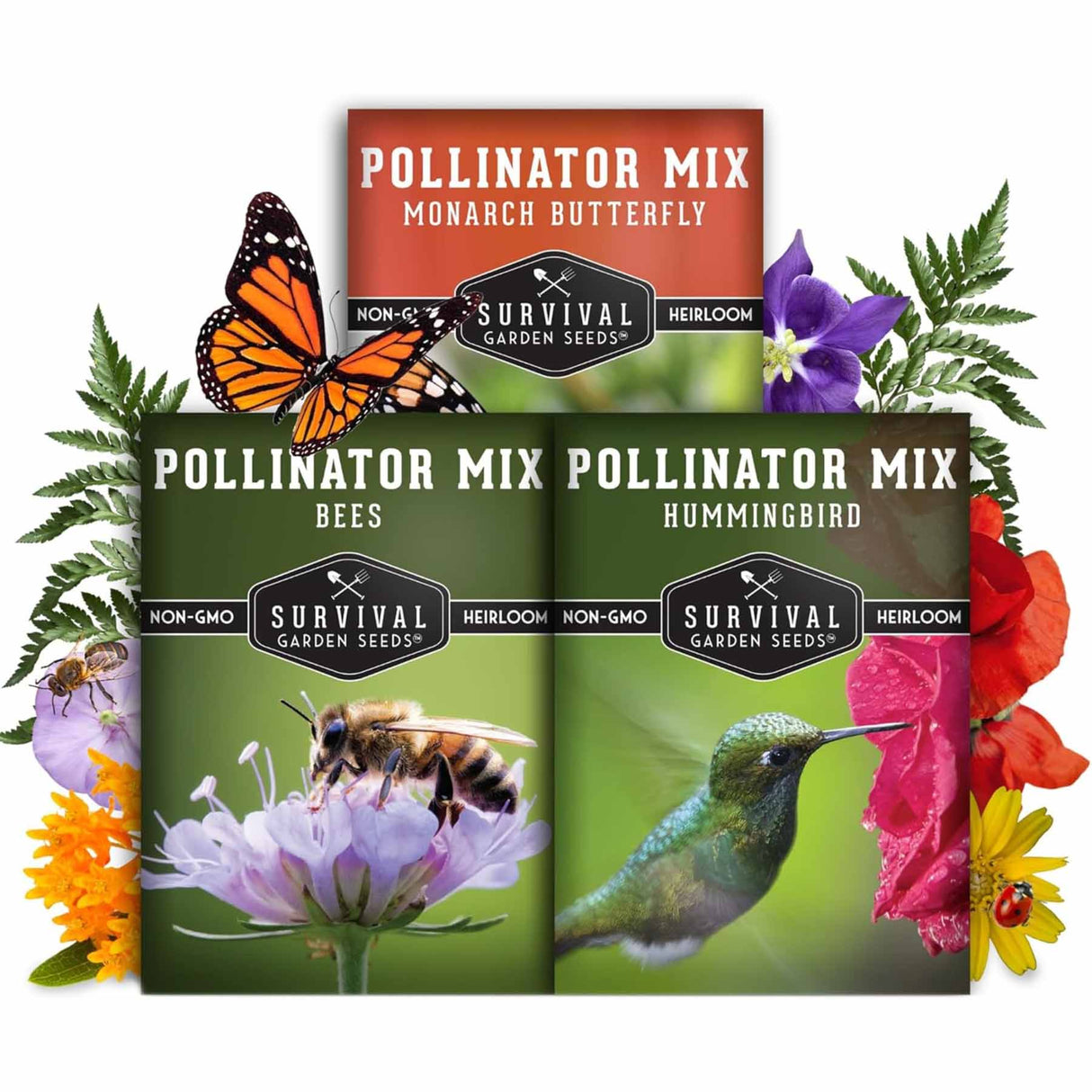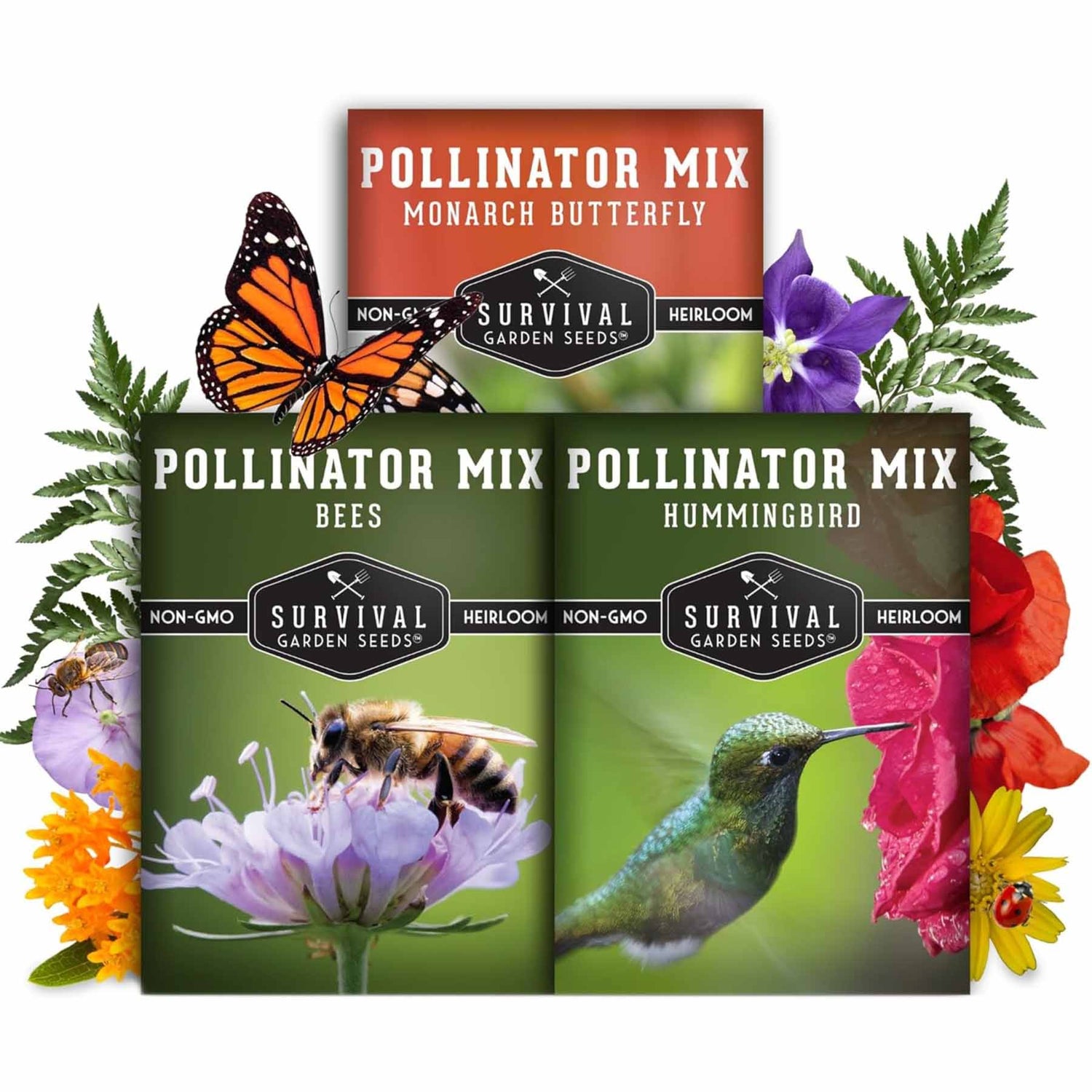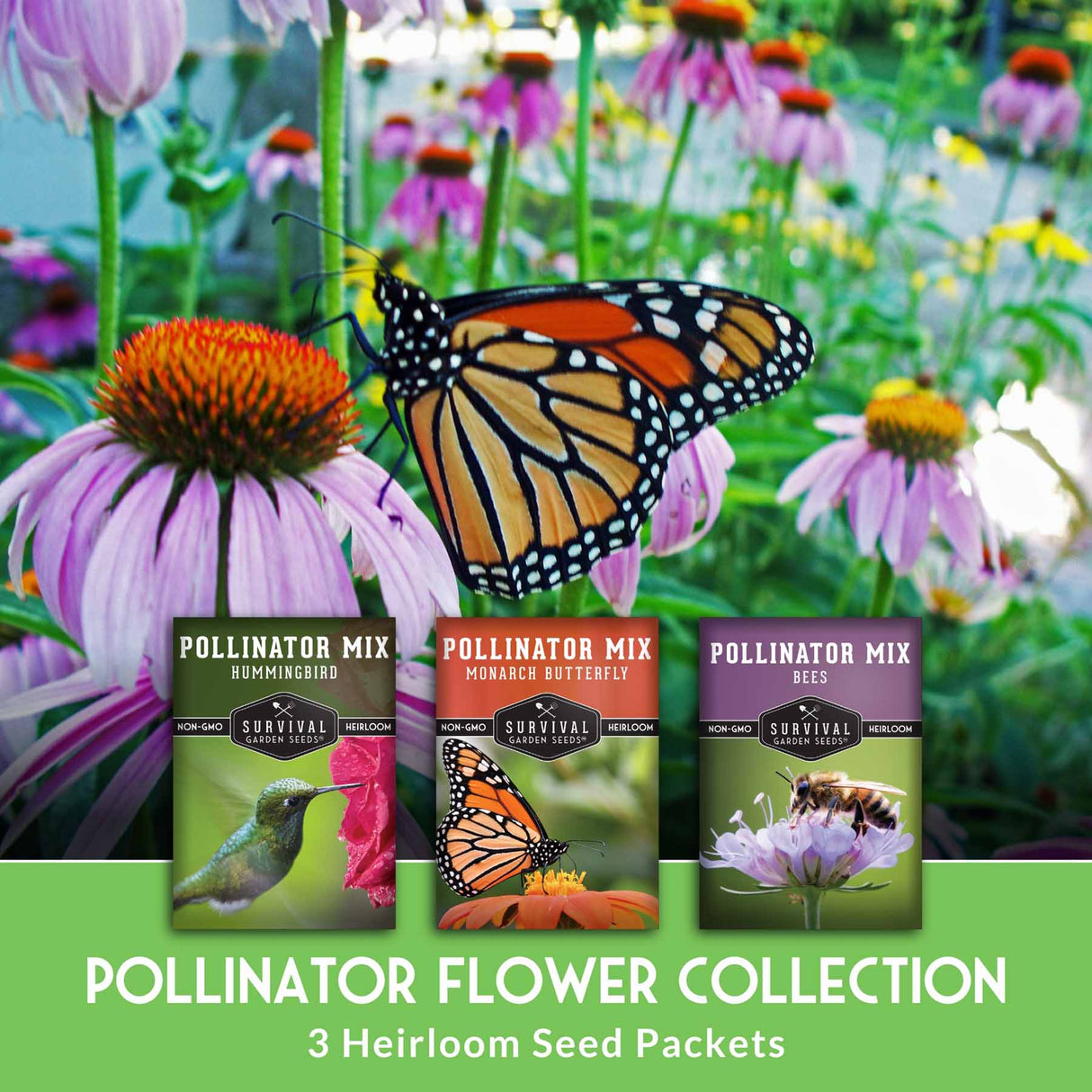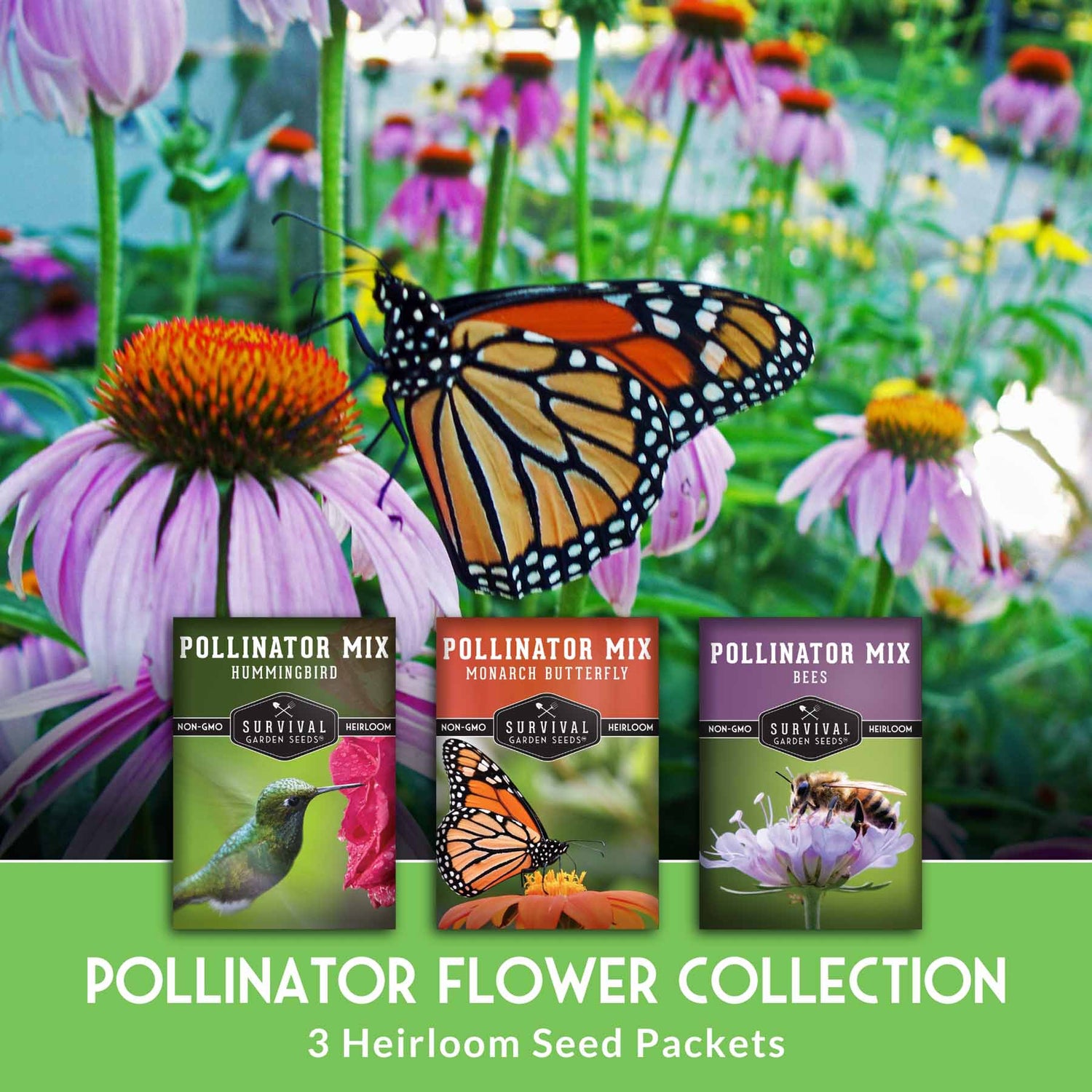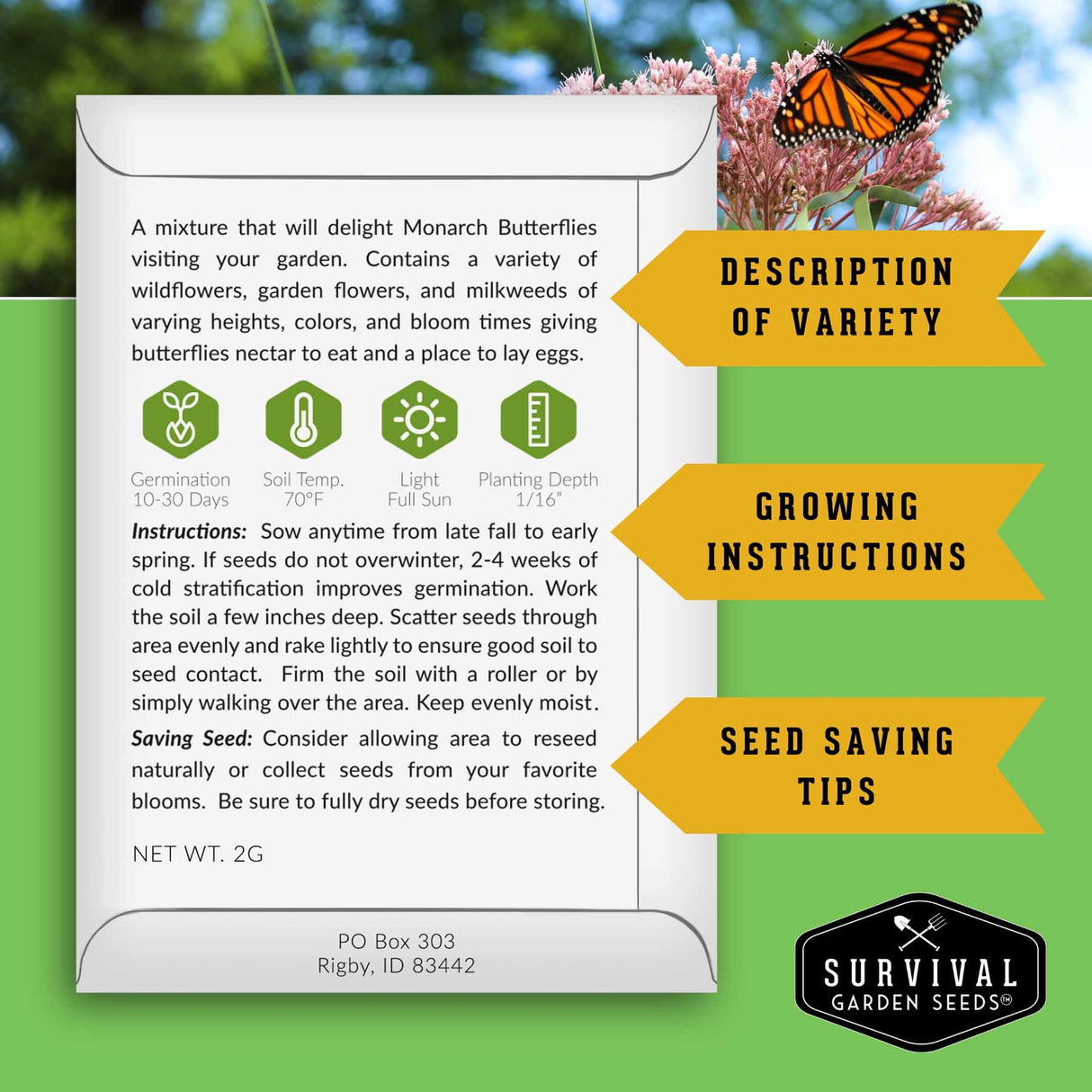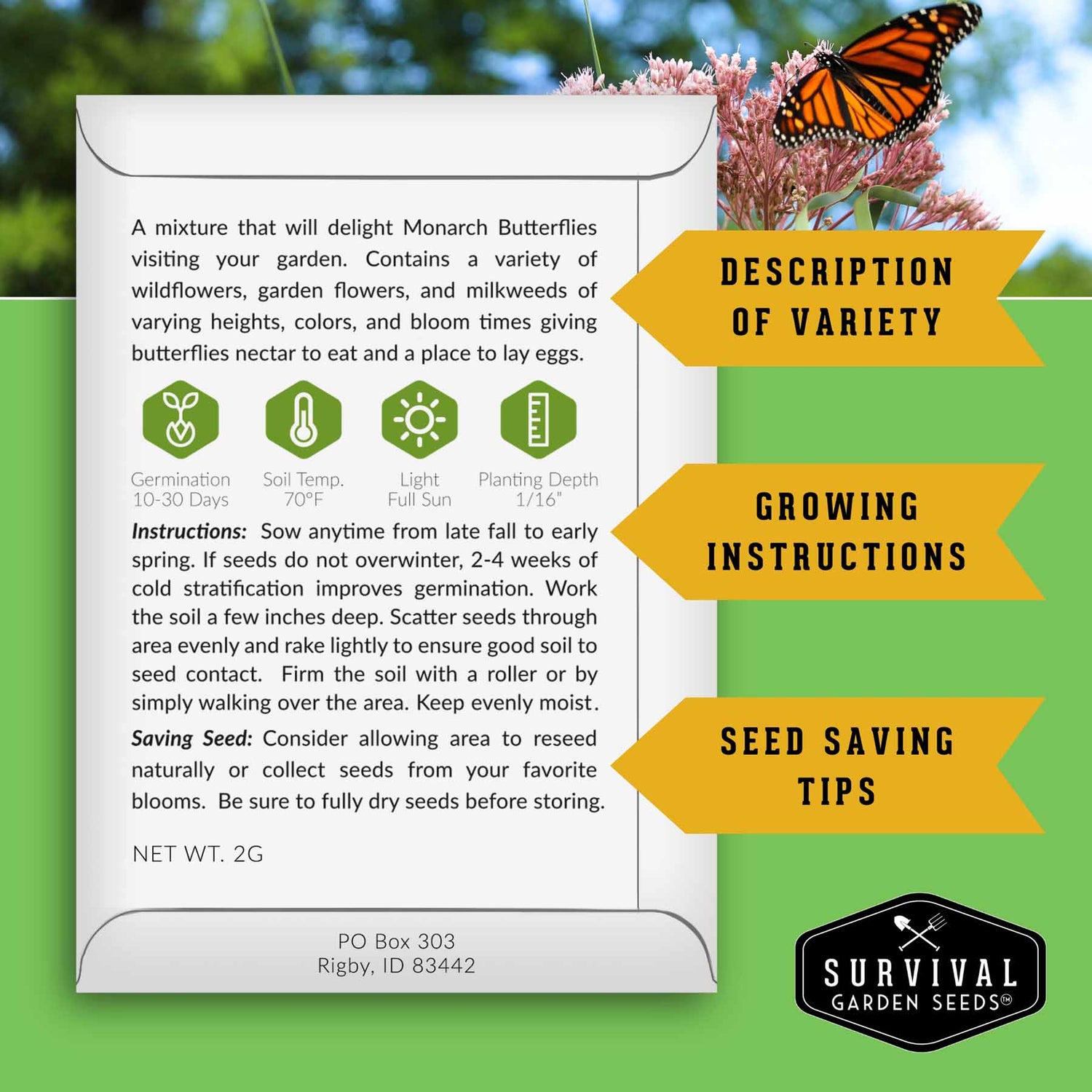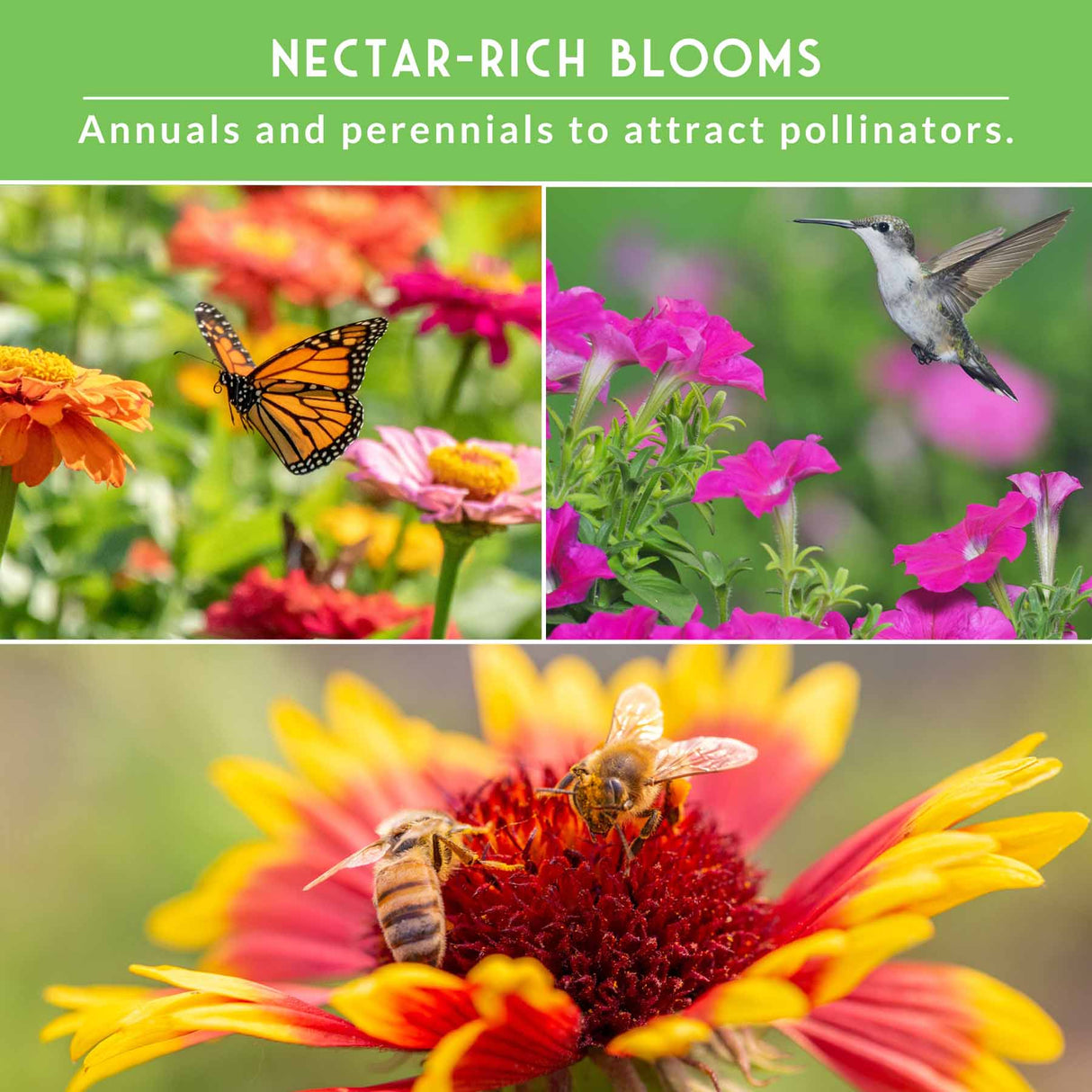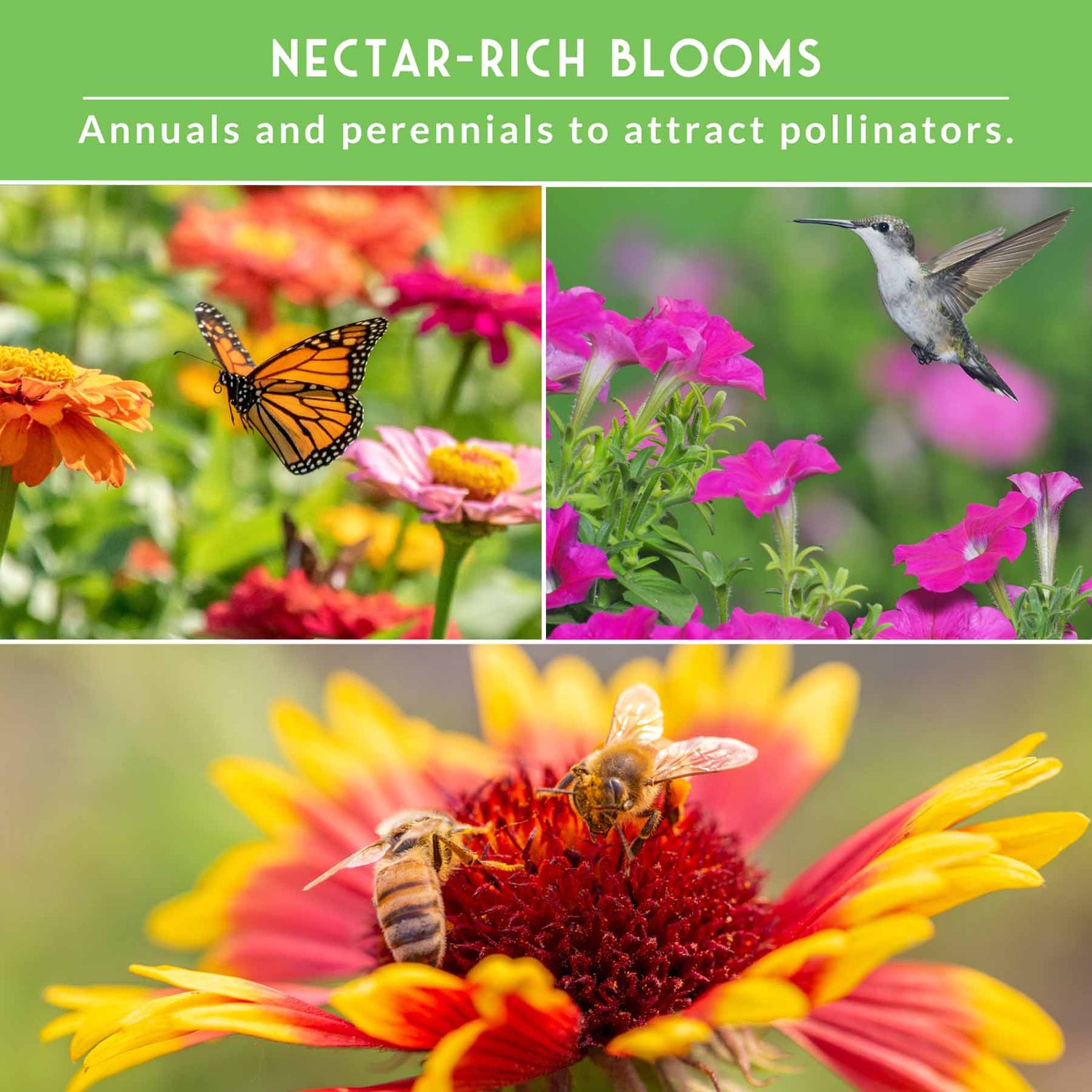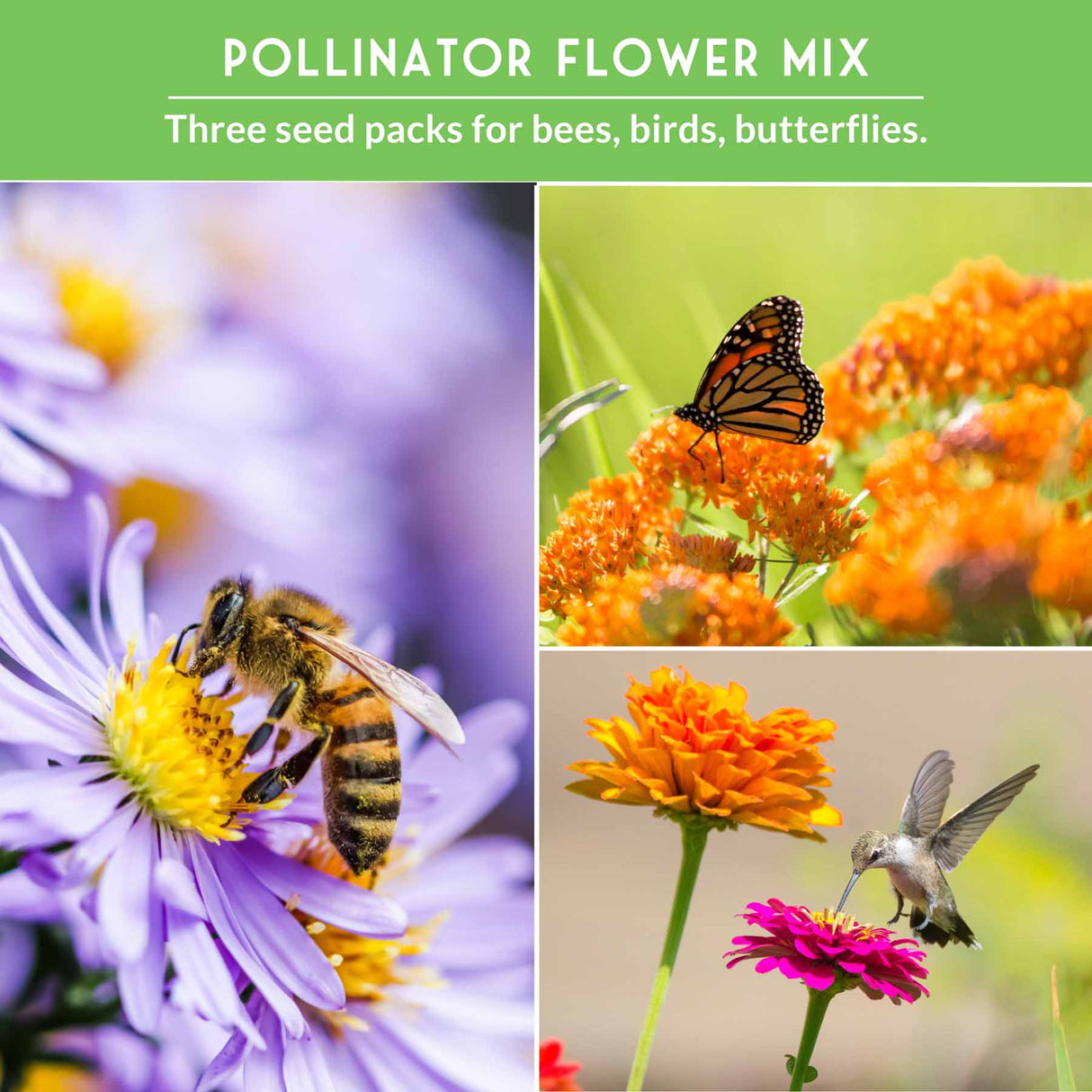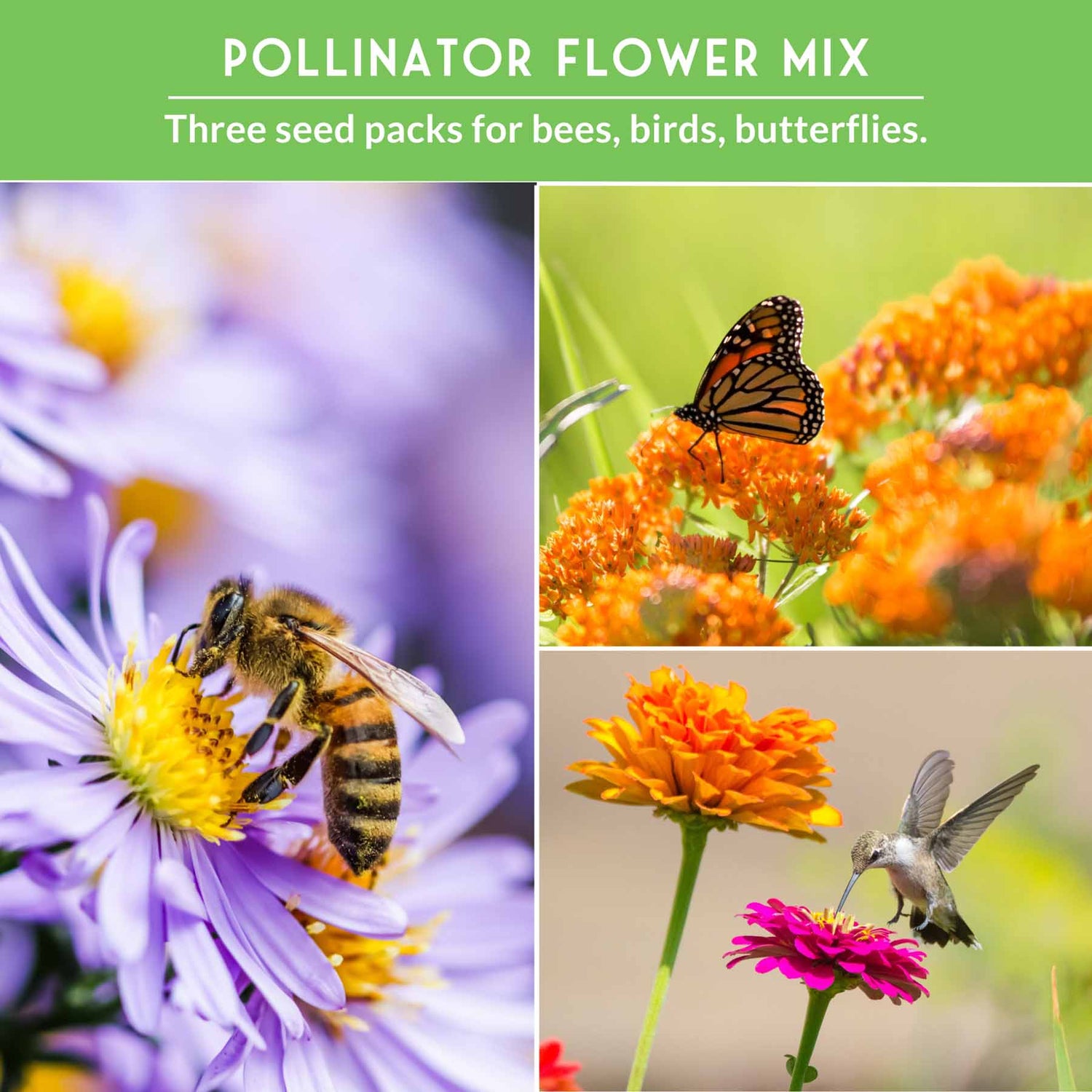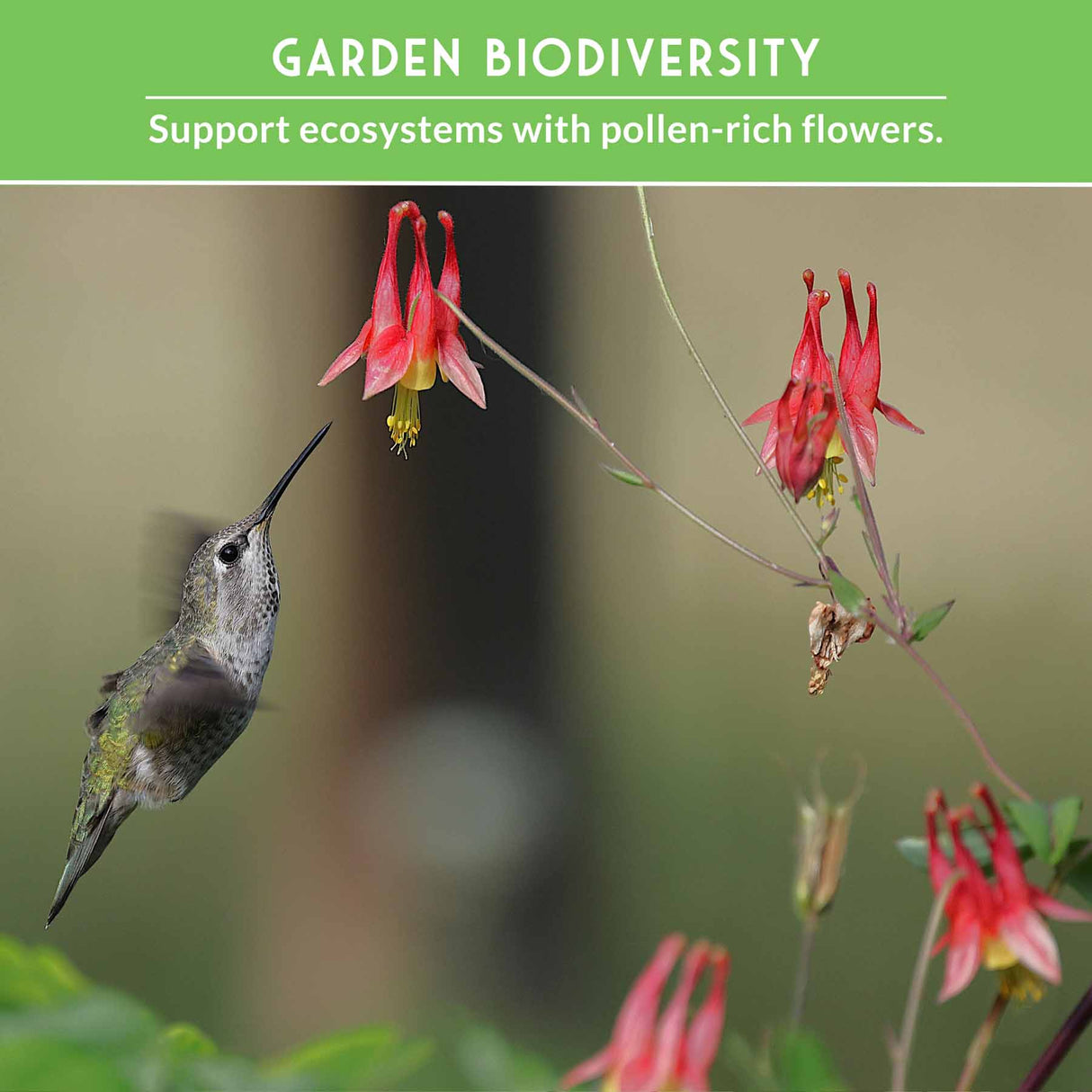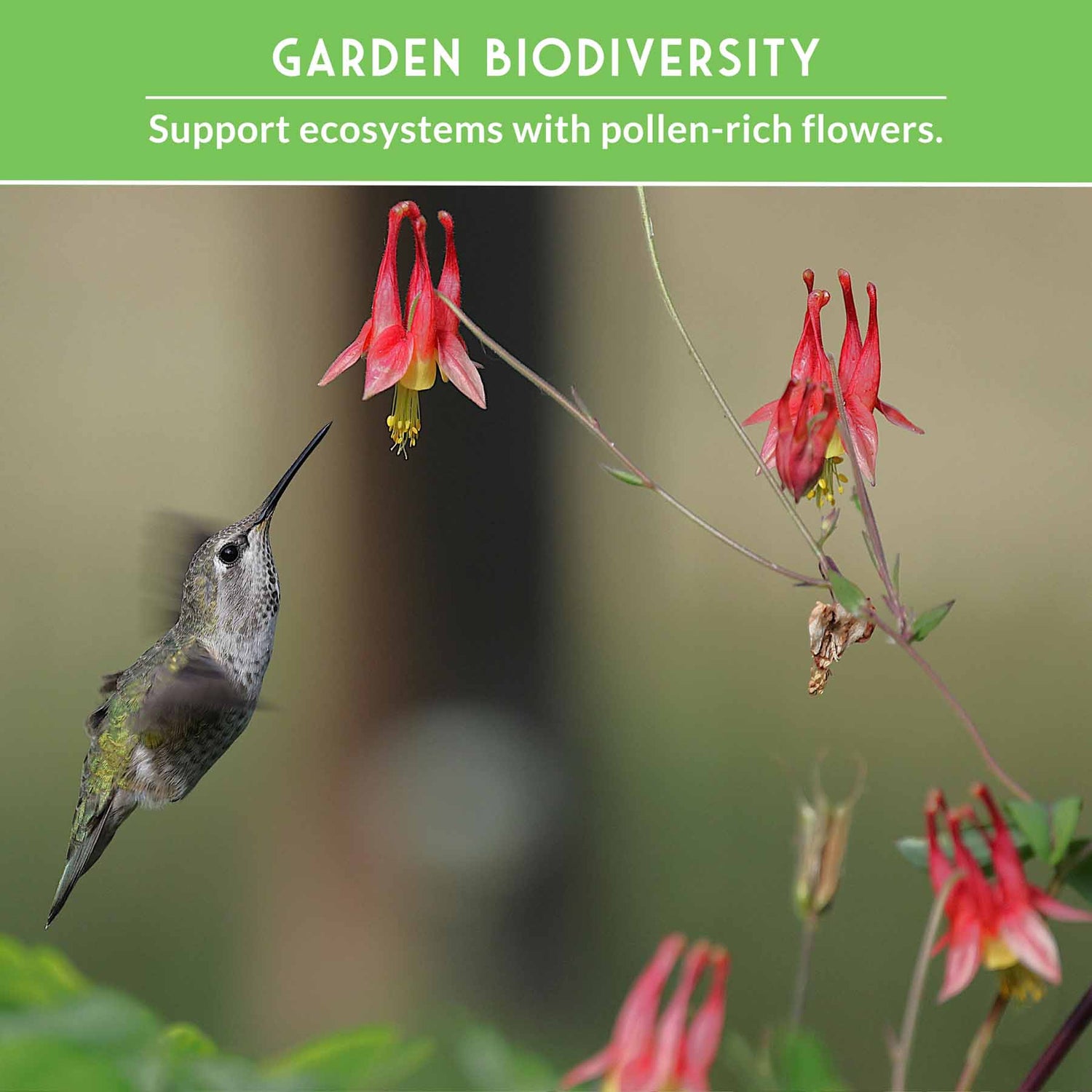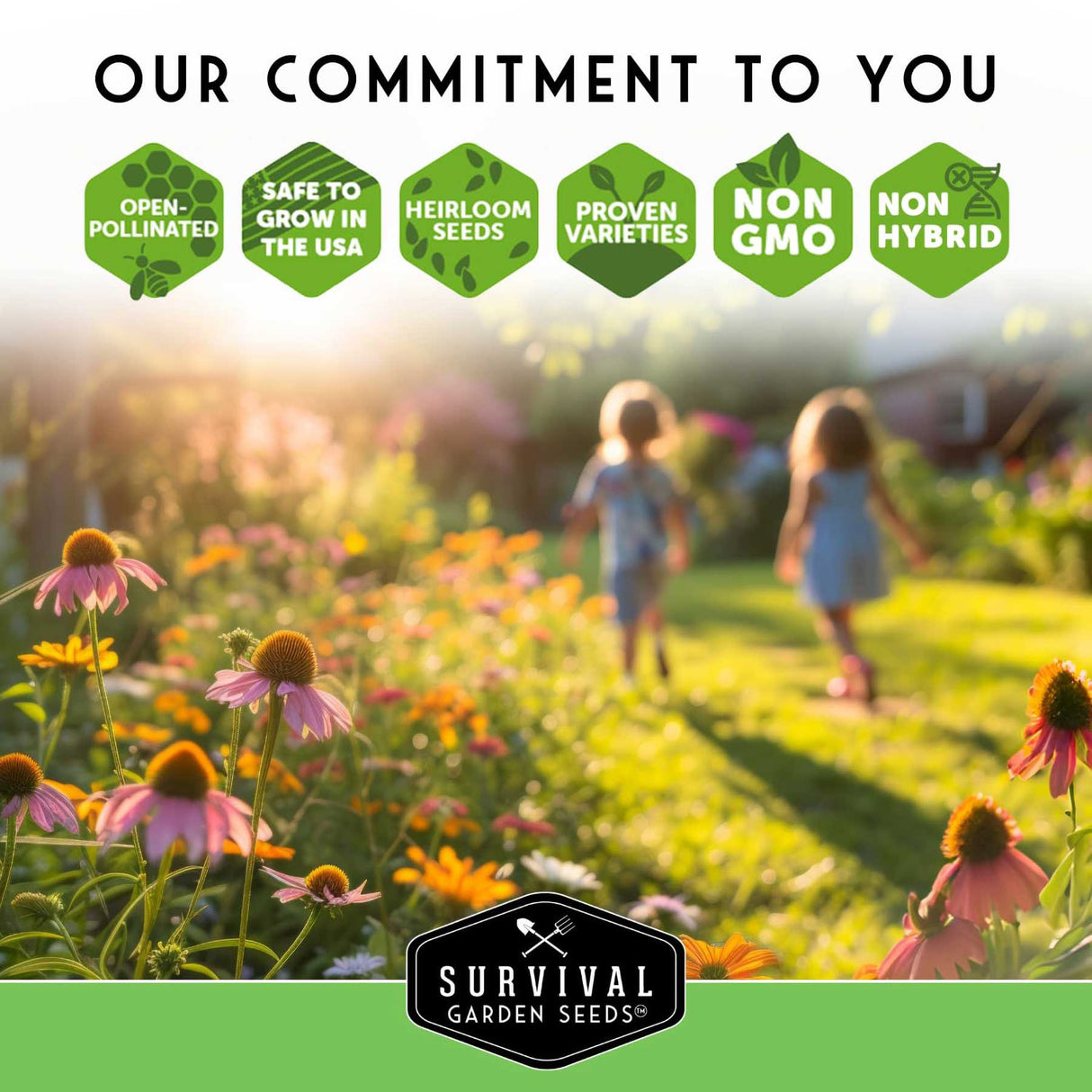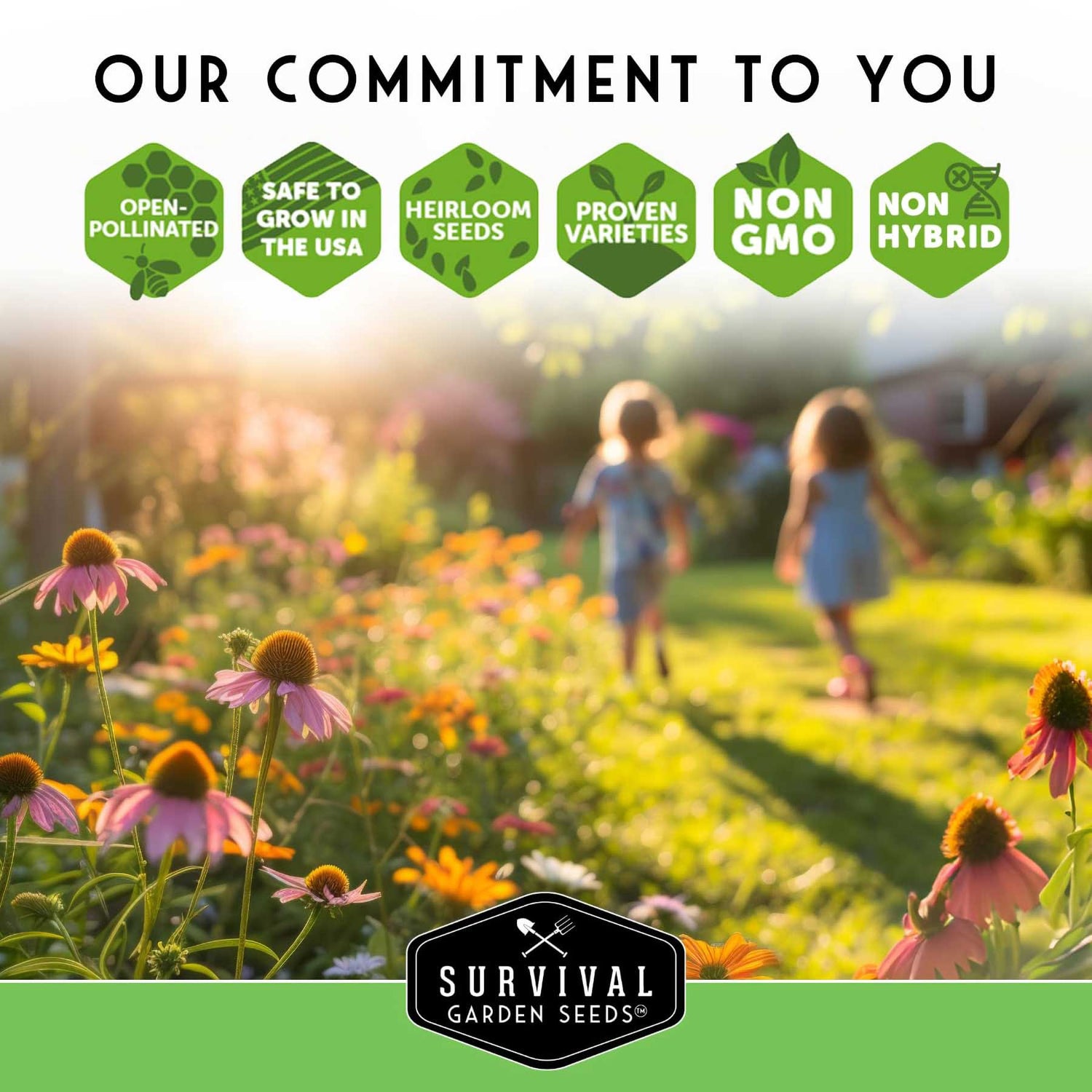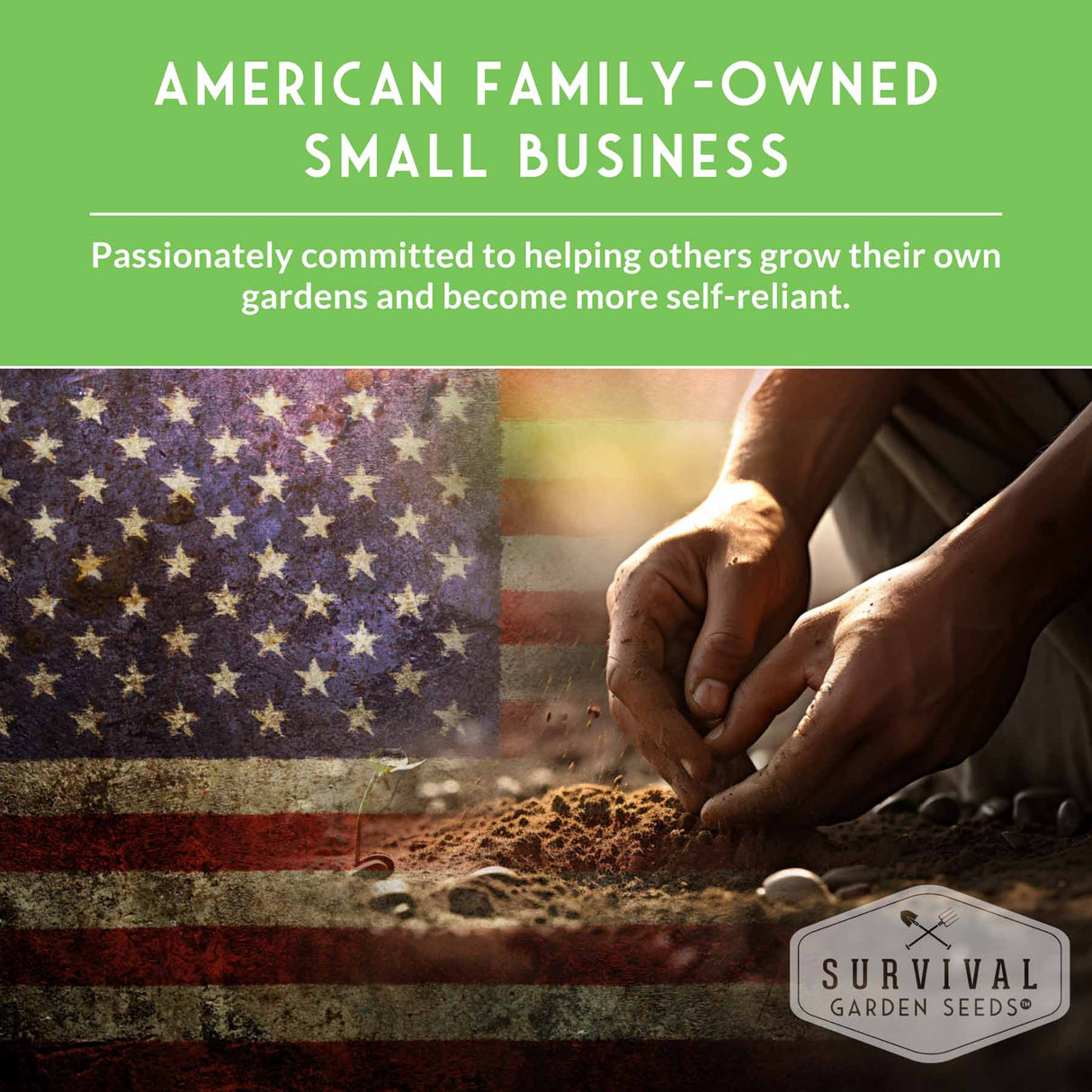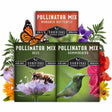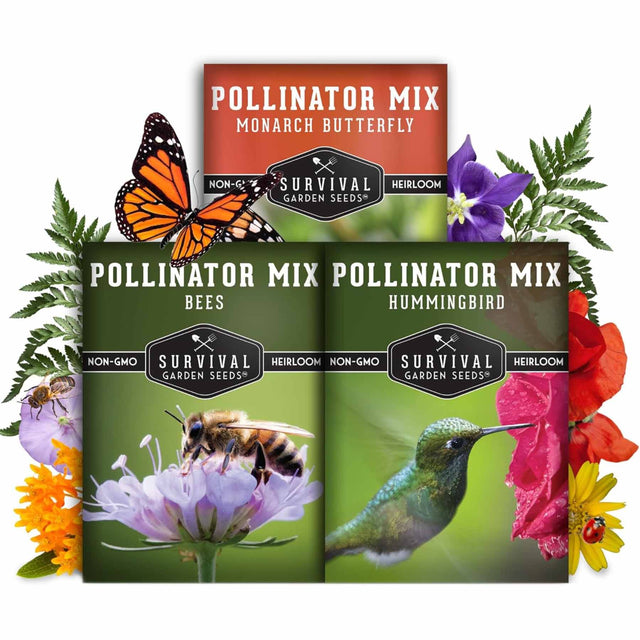Pollinator Flower Seed Collection - Wildflower Mixes for Bees, Butterflies & Hummingbirds
Heirloom - Non-GMO - Reliable Germination
Pollinator Flower Seed Collection - Wildflower Mixes for Bees, Butterflies & Hummingbirds is backordered and will ship as soon as it is back in stock.
Couldn't load pickup availability
Bring vibrant life and biodiversity to your garden with the Pollinator Seed Collection from Survival Garden Seeds. This curated set includes three unique wildflower blends—Butterfly Mix, Bees Mix, and Hummingbird Mix—each designed to attract and nourish a wide range of pollinators. Together, these mixes provide staggered bloom times, diverse colors, and varying plant heights to create a continuous source of nectar and pollen throughout the growing season.
These flowers support hummingbirds, butterflies (including monarchs), honeybees, native bees, bumblebees, beetles, ladybugs, and other beneficial insects. By planting all three mixes, you encourage a thriving ecosystem that enhances garden health, boosts crop production, and contributes to pollinator conservation.
Nectar- & Pollen-Rich Blends for a Healthy Garden:
- Butterfly Mix: Annual Candytuft, Butterfly Milkweed, Dwarf Cosmos, Gayfeather, Hoary Vervain, Indian Blanket, Marigold ‘Naughty Marietta’, Mexican Sunflower, Purple Coneflower (Echinacea), Rocket Larkspur, Siberian Wallflower, Smooth Aster, Sulphur Cosmos, Zinnia
- Bees Mix: Baby Blue Eyes, Bergamot, Blue Flax, California Poppy, China Aster, Chinese Forget-Me-Not, Corn Poppy, Fleabane Daisy, Globe Gilia, Indian Blanket, Lance-Leaved Coreopsis, New England Aster, Plains Coreopsis, Purple Coneflower, Purple Giant Hyssop, Siberian Wallflower, Sweet Alyssum, Tidy Tips
- Hummingbird Mix: Annual Phlox, Eastern Columbine, Elegant Lupine, Four O’Clocks, Gayfeather, Giant Columbine, Lemon Mint, Perennial Lupine, Rocket Larkspur, Rocky Mountain Penstemon, Scarlet Sage, Spurred Snapdragon, Sweet William Pinks, Tussock Bellflower, Wild Petunia
Why Customers Love the Pollinator Seed Collection:
- Attracts a wide range of essential pollinators and beneficial insects
- Provides continuous blooms across seasons for steady nectar and pollen
- Enhances biodiversity and supports a healthier garden ecosystem
- Ideal for cottage gardens, borders, meadows, pollinator pathways, and homesteads
- Includes a broad mix of annuals and perennials for lasting beauty and long-term impact
How to Grow:
Sow seeds directly outdoors in well-prepared soil after the danger of frost has passed. Lightly rake seeds into the soil surface and keep the area consistently moist until established. For best results, plant in a sunny location with good drainage. These mixes are well suited for garden beds, borders, meadows, and larger landscape areas. Allow some flowers to go to seed to encourage natural reseeding and expanding pollinator habitat over time.
Heirloom Garden Seeds
All of our seeds are open-pollinated, non-GMO, heirloom varieties with tested germination rates
Payment & Security
Payment methods
Your payment information is processed securely. We do not store credit card details nor have access to your credit card information.
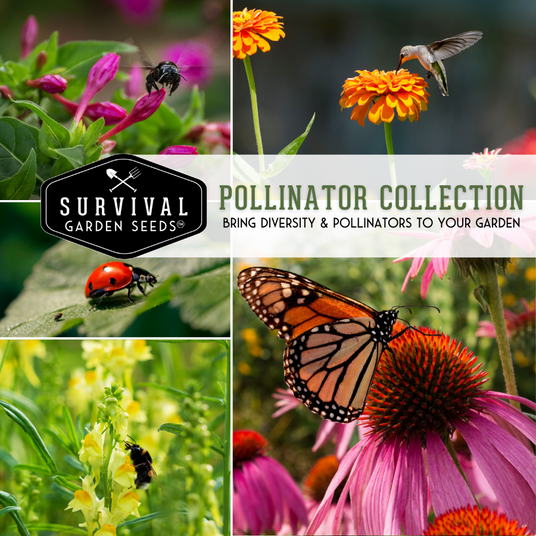
Nectar & Pollen Rich Varieties
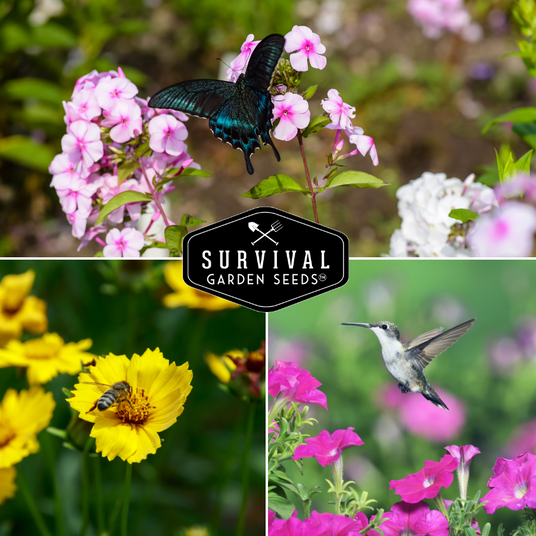
Sun Lovers
Why Choose Survival Garden Seeds
At Survival Garden Seeds, we believe in preparing today for tomorrow’s peace of mind. That’s why we offer only heirloom, non-GMO, and untreated seeds you can trust to nourish your family and support a sustainable lifestyle. As a family-owned American company, we’re committed to providing seeds that grow strong and true—helping you cultivate health, resilience, and beauty in your garden.
Frequently Asked Questions
Are your seeds heirloom and open-pollinated?
Are your seeds heirloom and open-pollinated?
Yes. All of our seeds are heirloom, open-pollinated varieties, which means they can produce seeds that grow true to type and are suitable for seed saving.
You can learn more about open-pollinated, heirloom, and non-GMO seeds in our Survival Garden Training blog.
Are your seeds non-GMO?
Are your seeds non-GMO?
Yes. All Survival Garden Seeds are 100% non-GMO. Our seeds are open-pollinated heirloom varieties and are never genetically modified.
Are your seeds treated with chemicals?
Are your seeds treated with chemicals?
No. Our seeds are completely untreated and free from chemical coatings, fungicides, or synthetic treatments.
How do I know my seeds are fresh?
How do I know my seeds are fresh?
Every seed packet includes a packed-for date, and we germination-test each seed lot before packaging to ensure high viability.
What is the shelf life of your seeds?
What is the shelf life of your seeds?
Most seeds remain viable for 3 to 5 years or longer when stored properly in a cool, dry place away from light and moisture.
In what USDA hardiness zones can I grow your seeds?
In what USDA hardiness zones can I grow your seeds?
Our varieties are selected to grow successfully across USDA Hardiness Zones 3 through 10. Each packet includes variety-specific planting guidance and germination tips.

